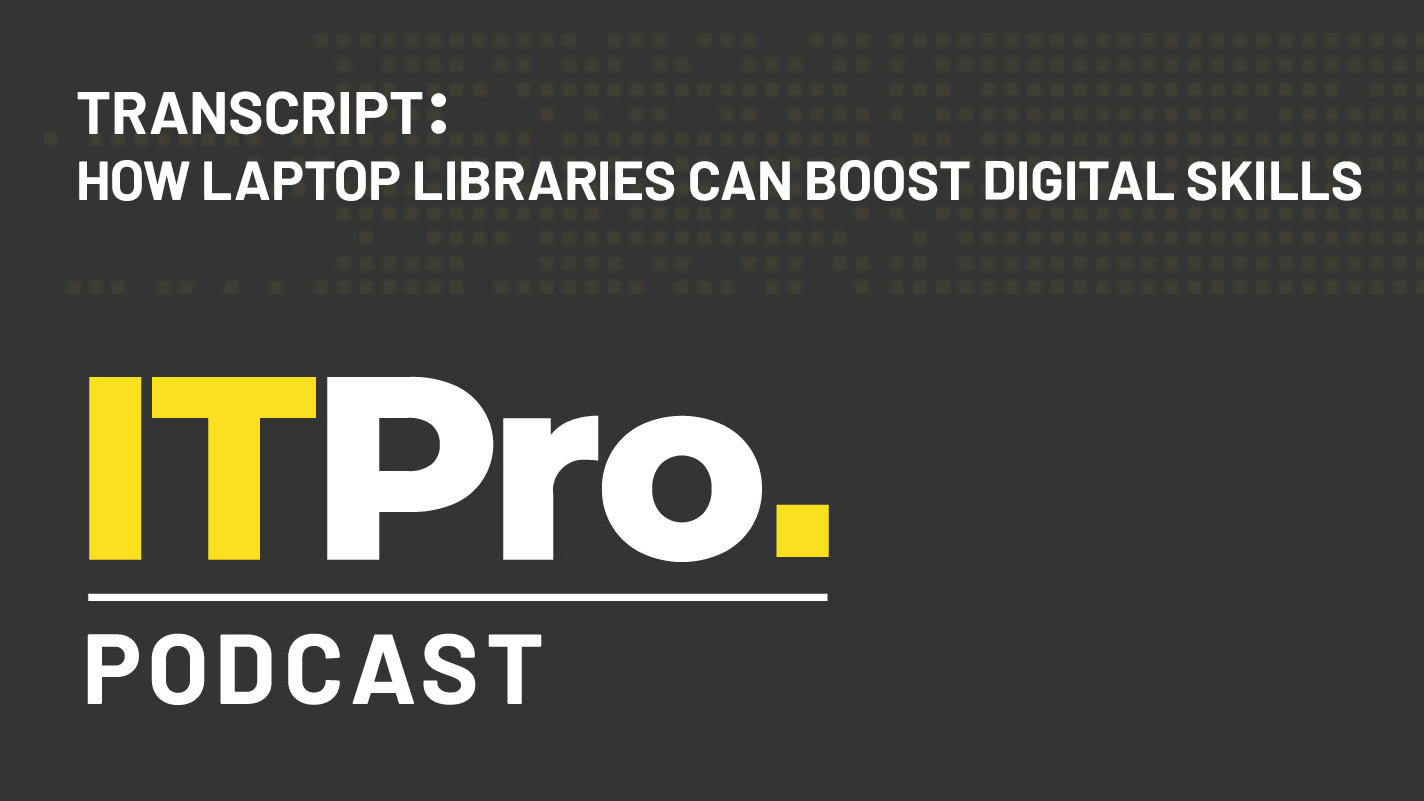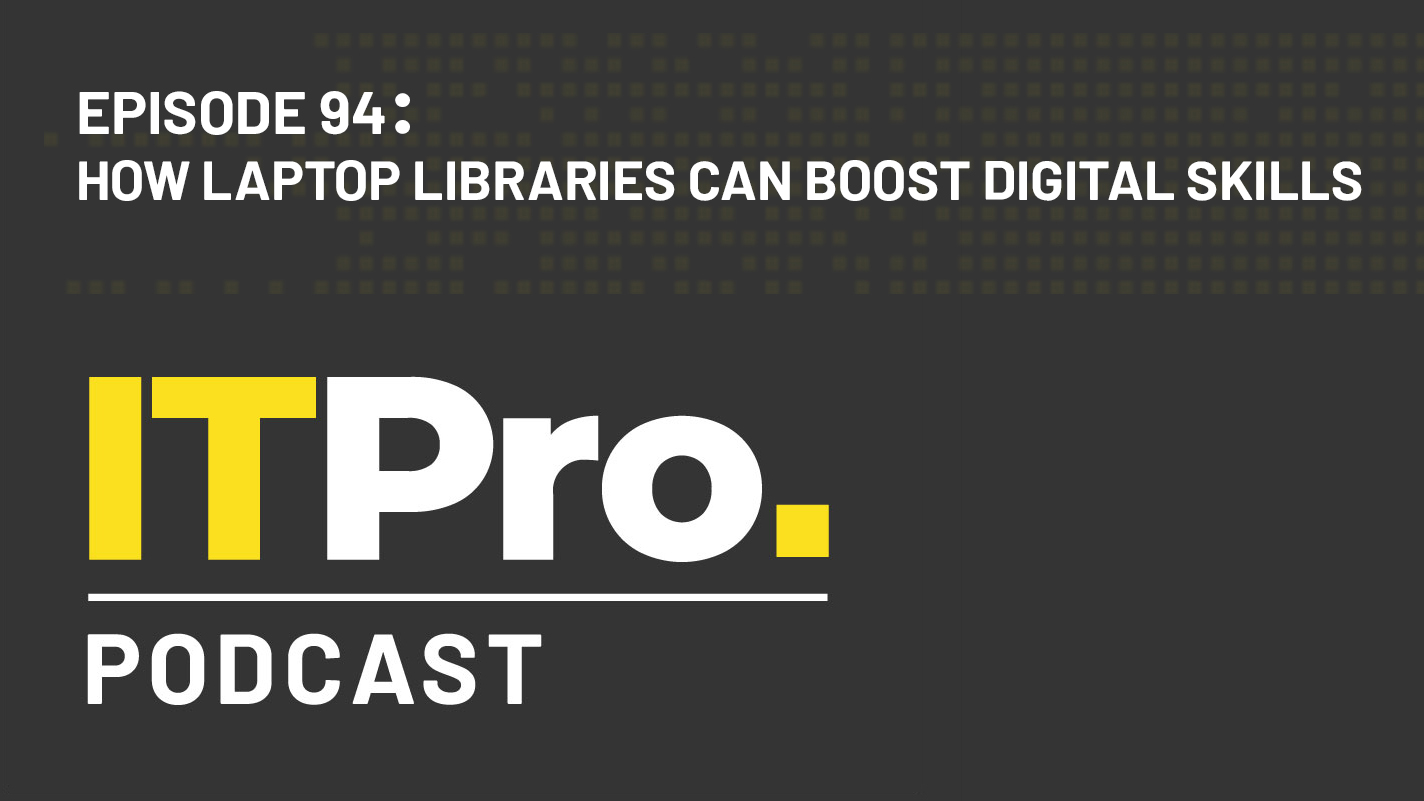Can private companies help solve the COVID laptop crisis?
IT departments in the private sector could help bridge the digital divide, both now and as we emerge from the current crisis

Sign up today and you will receive a free copy of our Future Focus 2025 report - the leading guidance on AI, cybersecurity and other IT challenges as per 700+ senior executives
You are now subscribed
Your newsletter sign-up was successful
The COVID-19 pandemic has served to shine a light on so many inequalities throughout our society – but when it comes to the growing chasm of a digital divide, could IT professionals be doing more to bridge it?
As the post-Christmas lockdown loomed, and parents or guardians readied themselves for home-schooling once more, it became clear just how many young people faced being left behind because they lacked either fixed or mobile broadband access or a suitable device to work on.
Teachers and education experts were once again exasperated at the government for not providing promised free laptops or tablets quickly enough. On January 12, it announced 300,000 further devices would be made available, taking the total offered to 1.3 million.
Mobile networks also promised to zero-rate certain educational websites to remove them from eating up the precious limited amounts of data some families had on their phone contracts while BT's "Lockdown Learning" support scheme saw BT Wi-Fi vouchers handed to schools and charity partners to pass on.
Organisations and volunteers rallied too, rushing to scoop up unused devices from the public and businesses – in 2019 the Royal Society of Chemistry estimated there were as many as 40 million unused gadgets in UK homes alone.
TechForUK even created a Lockdown Laptops Map showing close to 1,000 schools that needed donations of such technology. Stephen Way, one of its volunteers who is also a school governor and a computer professional, told the media: "I have talked to headteachers and know there is a gulf between the equipment being supplied by the Government and the needs of students in most schools.
"Getting devices to them is a big enabler so we hope to make that process easier while pushing for more broadband access."
Sign up today and you will receive a free copy of our Future Focus 2025 report - the leading guidance on AI, cybersecurity and other IT challenges as per 700+ senior executives
"It is absolutely the role of business to fill the void"
Way’s sentiments – and proactive approach to resolving the issue – are shared by many in the business and IT fields. David Richards, who founded the campaign Laptops For Kids in October in his hometown of Sheffield, believes businesses and IT depts could and should do more. It has now given out more than 5,000 laptops in the city and is launching the scheme in Leeds and Newcastle.
Richards, CEO of software firm of WANdisco, which is headquartered in Sheffield and Silicon Valley, explains: "The UK government has deeply underestimated the severity of digital poverty in the UK and it is absolutely the role of business to fill the void. The shortage of laptops is a supply chain issue.
"While over a million children go without, thousands of businesses have a surplus of unused devices. Gathering dust in storerooms, they might be obsolete for the latest business purposes, but for a child in need they can make a huge difference to their education, during home learning and beyond.
“In the past, businesses claimed security concerns prevented them from donating used laptops, but our work with the WANdisco Data Academy at The Sheffield College has proved we can rapidly and securely erase devices, while offering on-hand training for students at the same time. There is no excuse for business to let equipment go to waste when it is so vitally needed."
Charity Business2Schools is another organisation doing similar work, and has 3,000 schools in the UK and Ireland registered for donations, with more than 20,000 tonnes of office equipment and furniture allocated. It’s also using its partnership with mapping software company Esri UK to make this as efficient as possible.
Lindsey Parslow, CEO of Business2Schools, highlights how passing such technology on is often cheaper than recycling it, saying: "Private technology companies should absolutely be thinking about schools when upgrading and recycling office equipment. It's nonsensical such an enormous amount still ends up in landfill.
"School replenishment of IT takes place every 10 years on average, yet businesses tend to recycle desktop computers and laptops every three to five years. Having updated IT equipment means kids aren't simply waiting for an old computer to load up, they can work faster and be more engaged in the classroom."
Is doing the right thing enough of an incentive?
With the Government allocating taxpayers money to fund its current scheme, could there be a better way to partner with businesses?
James O'Dowd, founder of the Patrick Morgan Foundation, which has a digital academy to help young people into work, suggests doing right by the community you exist in should be reason enough to help.
"To be successful in the future, all business leaders must define a social purpose that serves their local communities as well as creating a functioning CSR programme that employees can be a part of. It isn't difficult to have a significant impact irrespective of the size of your organisation or budget,” he says.
"Tech companies can better define their contribution to the communities in which they operate, keeping it in line with the interests and skills of their employees and their own business expertise,” he adds. “For example, providing access to devices for underprivileged youths or avenues into STEM jobs for students. Not only will they make a remarkable impact on their communities, but they will find themselves with a motivated workforce with a bigger goal away from their day-to-day tasks."
One company exemplifying O'Dowd's view is Bath-based full fibre broadband provider Truespeed, which gives free ultrafast broadband for life to schools passed by its network infrastructure. Currently 50 rural schools in the Bath and North East Somerset area are benefiting from this initiative, including Marksbury C of E Primary School.
Julie Player, head teacher at the school, told the media: "Before we went live with this service our broadband connectivity was so unreliable that we couldn't really rely on online learning resources. Now teachers can now make the most of cloud-based storage for lesson planning, as well as a whole host of valuable cloud-based teaching aids."
However, as the COVID pandemic rolls on and new solutions are needed, could tax incentives be one route?
Peter Ford, public sector industry principal at Pegasystems, believes this would be preferable to putting the onus on private companies.
"The cost overhead associated with the refurbishment and cleaning of data would be far too much for them to bear. A social responsibility tax would be a more viable approach,” he says.
"By introducing a new (very small) tax, levied on companies whose net profits exceed a predefined level, there will be money available to invest in charitable funding of IT across the IT education sector to help close the digital divide.
"This would not preclude companies voluntarily donating surplus kit of their own volition and, perhaps, the government may want to compensate this via some form of tax break to at least make it cost neutral."
Echoing O'Dowd's views, he adds: "Doing 'the right thing' should be incentive enough."
Jonathan Weinberg is a freelance journalist and writer who specialises in technology and business, with a particular interest in the social and economic impact on the future of work and wider society. His passion is for telling stories that show how technology and digital improves our lives for the better, while keeping one eye on the emerging security and privacy dangers. A former national newspaper technology, gadgets and gaming editor for a decade, Jonathan has been bylined in national, consumer and trade publications across print and online, in the UK and the US.
-
 ITPro Best of Show NAB 2026 awards now open for entries
ITPro Best of Show NAB 2026 awards now open for entriesThe awards are a fantastic opportunity for companies to stand out at one of the industry's most attended shows
-
 Mistral CEO Arthur Mensch thinks 50% of SaaS solutions could be supplanted by AI
Mistral CEO Arthur Mensch thinks 50% of SaaS solutions could be supplanted by AINews Mensch’s comments come amidst rising concerns about the impact of AI on traditional software
-
 Intel, Barclays to provide laptops to UK teachers unable to access the Internet
Intel, Barclays to provide laptops to UK teachers unable to access the InternetNews The initiative aims to help teachers of more than 20,000 UK schoolchildren overcome inadequate online access
-
 Cornwall Council to lend laptops to the homeless
Cornwall Council to lend laptops to the homelessNews Partnership with the St Petrocs charity launches initiative to tackle the digital divide
-
 Podcast transcript: How laptop libraries can boost digital skills
Podcast transcript: How laptop libraries can boost digital skillsIT Pro Podcast Read the full transcript for this episode of the IT Pro Podcast
-
 The IT Pro Podcast: How laptop libraries can boost digital skills
The IT Pro Podcast: How laptop libraries can boost digital skillsIT Pro Podcast Young people need access to devices if they’re to develop crucial digital skills
-
 Older people get their own simple computer
Older people get their own simple computerNews The SimplicITy line was designed to help older people get to grips with computing.